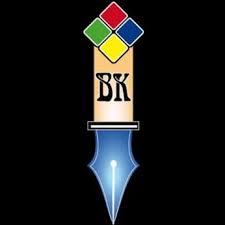
Dean Students Welfare (DSW) and Health Centre, Central University of Kashmir (CUKashmir) in collaboration with the Directorate of Health Services, Kashmir, with active support from Sun Pharma and Save Brain Initiative, Wednesday observed ‘World Stroke Day’ with a one-day health check-up and lecture session themed “Every Minute Counts” at Tulmulla campus.
The event was organised with an aim to raise awareness about stroke, its causes, prevention, and the importance of timely medical intervention to save lives and reduce disability. In the health check-up camp, university students, staff, and faculty availed consultation from Dr. Showkat Hassan, noted Neurologist, Nodal Officer for Stroke Thrombolysis Programme, and Founder of Stroke Thrombolysis in Kashmir.
In his presentation, Dr. Showkat Hassan said, “A stroke is a sudden onset neurological deficit lasting more than 24 hours, caused by a vascular issue.” He elaborated on the two types of stroke: Ischemic stroke (caused by a blocked blood vessel, accounting for 87% of cases) and Haemorrhagic stroke (caused by a ruptured vessel, about 13% of cases). Citing alarming statistics, he informed that globally, over 80 million people were affected by stroke in 2016, and in India, the incidence stands at 119–145 per 100,000 population.
Describing the devastating outcomes of stroke, Dr. Hassan listed its effects — from paralysis and aphasia to visual and speech impairments, vertigo, and even multiple complications occurring simultaneously. “With time,” he warned, “patients can develop infections, depression, psychosis, seizures, contractures, and a crushing financial burden. In many cases, stroke doesn’t just attack the brain — it dismantles families.”
Discussing the causes and risk factors, Dr. Hassan identified hypertension, diabetes, smoking, and high-fat diets as major culprits. “Lifestyle is a key determinant,” he stressed. “Dietary indiscretions, stress, drug abuse, and lack of regular medical screening accelerate vulnerability.” He also highlighted genetic predisposition and the impact of cold climate and aging on stroke prevalence.
Speaking on the occasion, Medical Officer, Dr. Abid Ahmad, said, “Every individual must recognise the warning signs of a stroke, understand the urgency of the golden hour, and respond promptly. Dr. Abid further said that “awareness is the best medicine. Educate others, eat healthy, exercise regularly, sleep well, and manage stress. Remember — every minute counts, and every action matters.”
Medical Officer, Dr. Sheeba said the initiatives like these are part of the efforts of the university's Health Center to make health a collective responsibility. Medical Attendant Mr Javid Ali facilitated the conduct of the programme.
Sr. Asst Prof. Dr. Firdous Ahmad Sofal conducted the programme proceedings.
Dean Students Welfare (DSW) and Health Centre, Central University of Kashmir (CUKashmir) in collaboration with the Directorate of Health Services, Kashmir, with active support from Sun Pharma and Save Brain Initiative, Wednesday observed ‘World Stroke Day’ with a one-day health check-up and lecture session themed “Every Minute Counts” at Tulmulla campus.
The event was organised with an aim to raise awareness about stroke, its causes, prevention, and the importance of timely medical intervention to save lives and reduce disability. In the health check-up camp, university students, staff, and faculty availed consultation from Dr. Showkat Hassan, noted Neurologist, Nodal Officer for Stroke Thrombolysis Programme, and Founder of Stroke Thrombolysis in Kashmir.
In his presentation, Dr. Showkat Hassan said, “A stroke is a sudden onset neurological deficit lasting more than 24 hours, caused by a vascular issue.” He elaborated on the two types of stroke: Ischemic stroke (caused by a blocked blood vessel, accounting for 87% of cases) and Haemorrhagic stroke (caused by a ruptured vessel, about 13% of cases). Citing alarming statistics, he informed that globally, over 80 million people were affected by stroke in 2016, and in India, the incidence stands at 119–145 per 100,000 population.
Describing the devastating outcomes of stroke, Dr. Hassan listed its effects — from paralysis and aphasia to visual and speech impairments, vertigo, and even multiple complications occurring simultaneously. “With time,” he warned, “patients can develop infections, depression, psychosis, seizures, contractures, and a crushing financial burden. In many cases, stroke doesn’t just attack the brain — it dismantles families.”
Discussing the causes and risk factors, Dr. Hassan identified hypertension, diabetes, smoking, and high-fat diets as major culprits. “Lifestyle is a key determinant,” he stressed. “Dietary indiscretions, stress, drug abuse, and lack of regular medical screening accelerate vulnerability.” He also highlighted genetic predisposition and the impact of cold climate and aging on stroke prevalence.
Speaking on the occasion, Medical Officer, Dr. Abid Ahmad, said, “Every individual must recognise the warning signs of a stroke, understand the urgency of the golden hour, and respond promptly. Dr. Abid further said that “awareness is the best medicine. Educate others, eat healthy, exercise regularly, sleep well, and manage stress. Remember — every minute counts, and every action matters.”
Medical Officer, Dr. Sheeba said the initiatives like these are part of the efforts of the university's Health Center to make health a collective responsibility. Medical Attendant Mr Javid Ali facilitated the conduct of the programme.
Sr. Asst Prof. Dr. Firdous Ahmad Sofal conducted the programme proceedings.
© Copyright 2023 brighterkashmir.com All Rights Reserved. Quantum Technologies